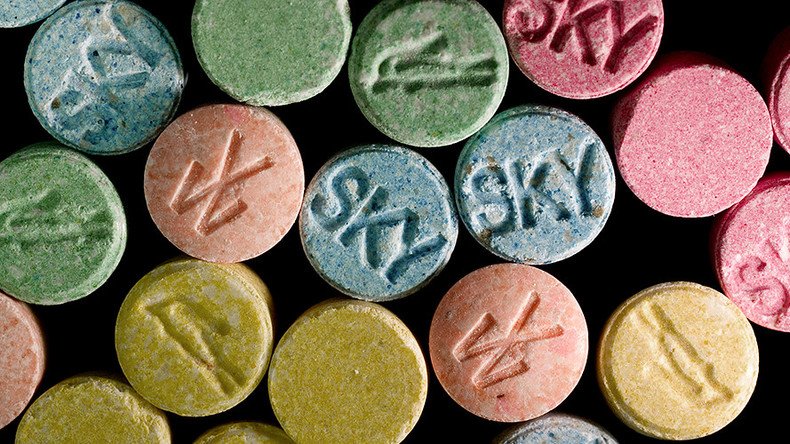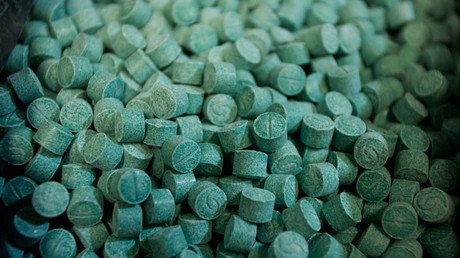Pills not pints: UK set to conduct first-ever trial for treating alcohol addiction with MDMA

Twenty chronic alcoholics will be given doses of pure MDMA, a drug known recreationally as molly, or ecstasy, in a bid to wean them off alcohol, during a landmark experimental study set to begin in Bristol this summer.
“After 100 years of modern psychiatry our treatments are really poor,” lead researcher, Ben Sessa, of Imperial College London, said in his explanation of the study at the Breaking Convention conference in London this week. “The chances of relapse for these [heavy-drinking] patients are really high – 90 percent at three years. No one has ever given MDMA to treat alcoholism before.”
Prior to the study, which received ethical approval in recent weeks, the patients, who on average consume an equivalent of five bottles of wine a day, will be sent to detox, and receive two drug-free therapy sessions. Then, they will be given a high dose of ecstasy, and undergo an all-day counseling session, which will comprise meditation and one-to-one talks with a therapist.
“It’s using drugs to enhance the relationship between the therapist and the patient, and it allows us to dig down and get to the heart of the problems that drive long-term mental illness,” said Sessa, who said that the treatment isn’t “all about the drugs.”
As well as the innovative nature of the research, an obstacle has been the prohibitive cost of obtaining lab-grade MDMA, which costs about £40 per gram on the street, according to DrugWise, an official UK narcotics information website.
“We earmarked £3,500 for our 12g of MDMA, but we are now looking at £62,000 for the 12g,” complained Sessa, the Guardian reported.
Sessa, a clinical psychiatrist by training, calls MDMA a “remarkable substance” on his website, which highlights his track record of previous studies investigating the use of MDMA to treat post-traumatic stress disorder, a far-better established field of research.
“We know that MDMA works really well in helping people who have suffered trauma and it helps to build empathy. Many of my patients who are alcoholics have suffered some sort of trauma in their past and this plays a role in their addiction,” said Sessa.
According to campaigning group Alcohol Concern, 9 million people in England alone consume more than the recommended 14-unit weekly limit, which is equivalent to about 6 pints of beer, and in 2014 around 8,700 people died directly as a result of their alcohol abuse.













